Interview: Artistic Director Kazushi Ono talks about the 2025/2026 season
―Please tell us about the performances in the 2025/2026 season. It has two new productions: Alban Berg's Wozzeck in November and Richard Strauss' Elektra in June next year.
The new productions of Wozzeck and Elektra will both be world premieres staged by the New National Theatre Tokyo (NNTT). These are not rental productions nor available for purchase from other theaters. The audience members at the NNTT will be the first to witness these new works in the world as these are both new creations for NNTT. Berg's Wozzeck is one of the greatest opera masterpieces of the early 20th century. 2025 marks 100 years since its premiere in 1925. Its music and story come into us so deep. It is a work for all of us in this era.
Based on Büchner 's play, the relationships between Marie, Wozzeck, and the Tambourmajor is the core theme of the libretto. Marie and Wozzeck live together as common-law partners, with a child while their life is in poverty. Tambourmajor appears in their lives one day, and he developed a close relationship with Marie. Wozzeck got mad and killed Marie, which made him suffer in deep despair and kill himself. The story is striking although Berg's compassion for human nature shines in every corner.
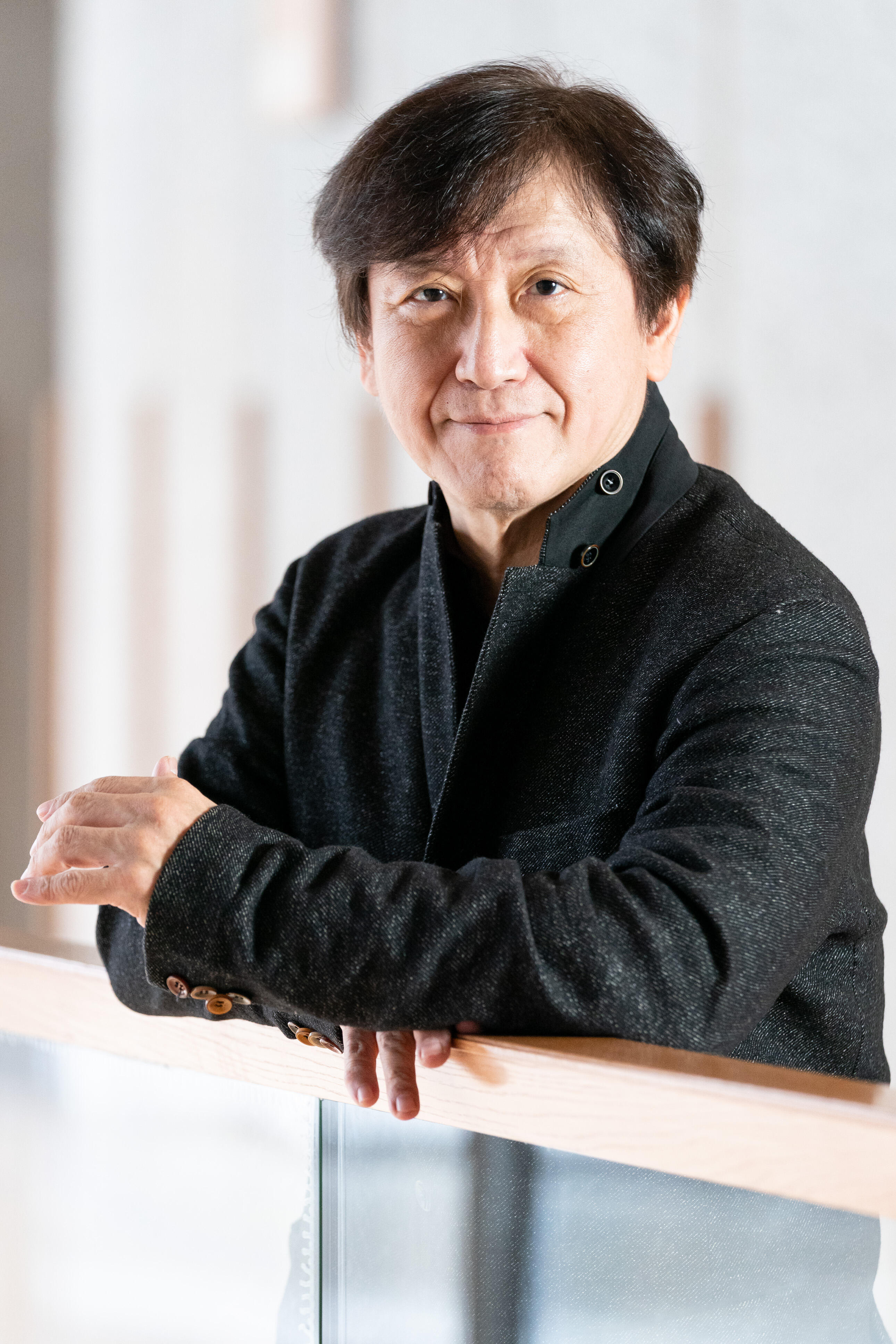
Ono Kazushi
―Berg was a composer of the Second Viennese School, and the music of Wozzeck is atonal.
It is indeed written in atonal style. There's no need to brace yourself, nevertheless. One reason is that Wozzeck is condensed to be very short. Each of the three acts lasts only for about 30 minutes, which is 1 hour and 30 minutes in total. Furthermore, each act consists of 5 scenes that unfold rapidly, so you should feel as if each music even shorter. Each scene is written in different musical style, such as a passacaglia or a fugue. The relationships between two or three characters are distinguished through different musical styles, which builds the drama naturally. The music includes waltzes, Tambourmajor singing a slow aria, Marie singing a gentle lullaby in six-four time while holding a child, a piano solo polka, and melodies heard throughout. Passacaglia and the fugue are in Baroque musical style, so many of you should be familiar with them. The music brings a joy to your ears once you recognize particular phrases.
―It is directed by Richard Jones of the United Kingdom. This marks his first appearance at the NNTT since 2009's Lady Macbeth of Mtsensk.
Mr. Jones has already directed Wozzeck at another theater. What I asked him, however, was to create his new Wozzeck at the NNTT. He is a director with an exceptionally keen sensibility, so he will surely carve out and depict each character and the human drama within Wozzeck. I am looking forward to the new Wozzeck he gives birth to.
―The title role is sung by Thomas Johannes Mayer, who portrayed Simone in this year's production of Eine florentinische Tragödie. He is a star singer who has frequently graced the stage of the NNTT. He was also in 2009 to sing Wozzeck in 2009.
Mr. Mayer was received so well for his performance as Hans Sachs in Die Meistersinger von Nürnberg, which I conducted in 2021. During the curtain call, Mr. Mayer and I discussed what we should do next, and he said, "I want to do Wozzeck." His voice is soft to embrace us and it comes so deep into our hearts. I'm thrilled that his singing will reach deep into our hearts again in Wozzeck. Jennifer Davis as Marie is a dramatic soprano who is gaining attention for her performances as Elsa in Lohengrin and other roles. Arnold Bezuyen as the Hauptmann is one of the world's foremost veteran tenors, who also sang the role of the treacherous Prince Vasiliy Shuisky in Boris Godunov.
―The second new production will be Richard Strauss' Elektra, which will be staged at the end of the season in June next year. This will be the first time the production has been staged at NNTT in 22 years.
Elektra is the opera by Strauss composed after Salome. It also marks the beginning of his collaboration with librettist Hofmannsthal.
The subject of Elektra is Greek tragedy. The protagonist, Elektra, is waiting for an opportunity to take revenge on her mother, Klytämnestra, and her lover, Aegisth, who killed her father, Agamemnon.
Elektra's sister, Chrysothemis, does not desire revenge as much as her sister, and her brother, Orest, has been missing for many years. When the time has finally come for Elektra to carry out her revenge, Orest returns, and the revenge is fulfilled.
The performance lasts about one hour and forty minutes. Beginning with a powerful theme, it repeats this theme multiple times as if stoking Elektra's desire for revenge, builds up energy, and finally ends with the same theme. The theme dominating the music possesses significant power in this production.
Her mother, Klytämnestra, lets out a terrifying scream in her death throes. I was stunned when I first heard Elektra in my youth. At the same time, I was struck and realized that this was what "revenge in music" is. The music is therefore always full of energy while the duets between Elektra and Orest, and those between Elektra and Chrysothemis, offer beautiful yet powerful moments to enjoy. At the end, Elektra sings a long aria, straining her voice and body to the limit, and then breathes her last. It contrasts with Wozzeck; if Wozzeck is "black," then Elektra is "scarlet." Elektra is someone for a fiercely burning color. It's an opera that keeps you gripped from start to finish.
―It is directed by Johannes Erath.
I collaborated with Mr. Erath on the world premiere of the contemporary opera Der Mieter in Frankfurt. He skillfully staged the complex, challenging scenes and created an elegant production. I found him to be intellectual and usually quiet. In the intense scenes of Der Mieter where the protagonist confronts those around him, however, he completely transformed his intelligent demeanor and acted with quite some energy. It made me realize that a director should possess a multifaceted personality. When I asked Mr. Erath with such a personality if he would create Elektra for NNTT, his answer was immediate and positive. I am truly looking forward to creating the production of Elektra with him.
―Could you tell us about the singers, please?
Aile Asszonyi, currently making her mark in this role, makes her debut at NNTT. Her confrontation with Mihoko Fujimura as her mother, Klytämnestra, is one of the scenes I look forward to. Hedvig Haugerud, as the lyrical sister Chrysothemis contrasting with Elektra, and renowned bass-baritone Egils Silins as the avenging brother Orest, also appear.
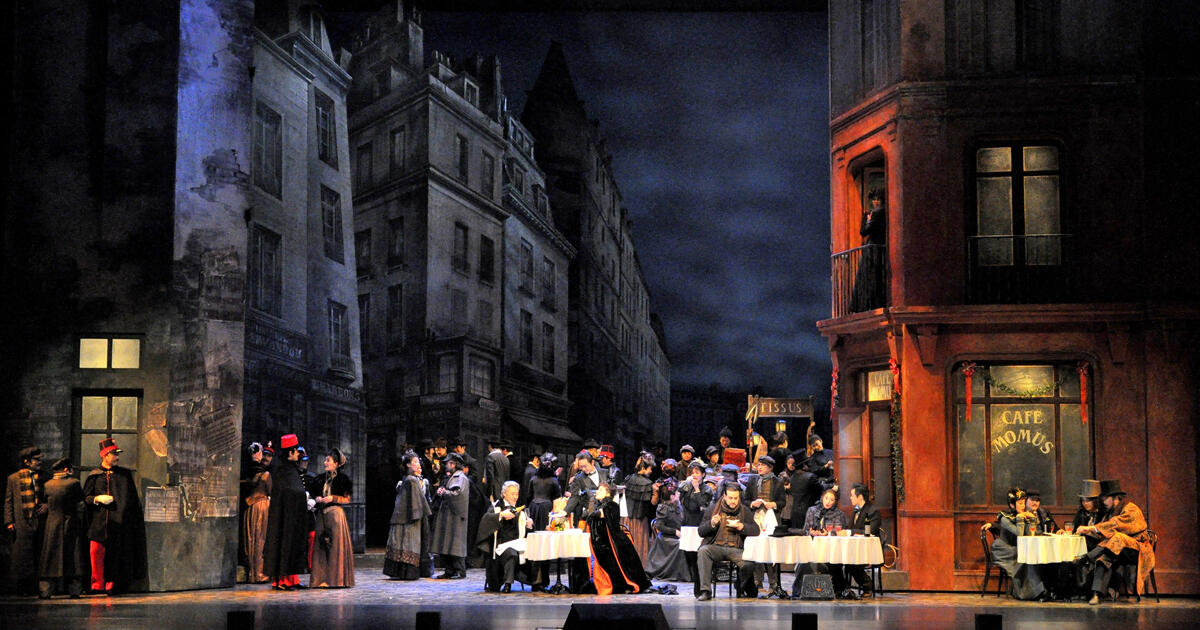
La Bohème
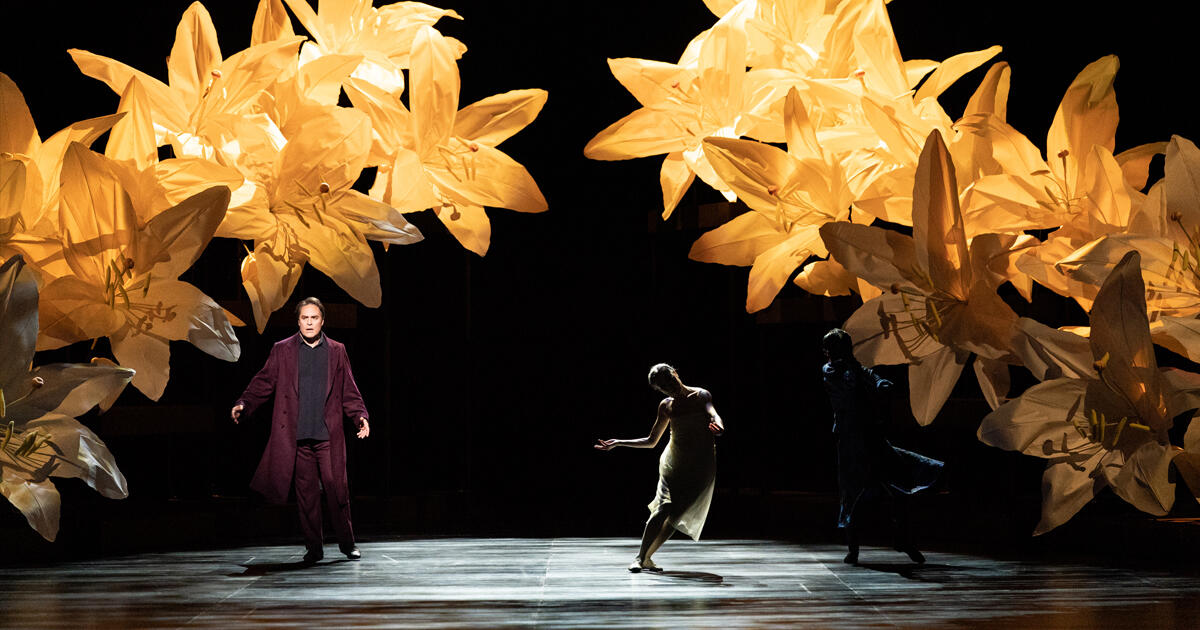
Orfeo ed Euridice
―The season has 8 repertoire productions. Please tell us about the notable conductors and singers.
Our new season opens with La Bohème. Our new season is promising to open with this Puccini's masterpiece, a production directed by Jun Aguni which came to be one of the favorites at NNTT. The conductor will be Paolo Olmi who we are all familiar with. Mimi sung by Marina Costa-Jackson, making her debut here. Rodolfo is sung by Luciano Ganci, whose magnificent tenor voice we heard in Simon Boccanegra, while Musetta is sung by Hare Ito who would bring a new taste.
Following Wozzeck, December brings Gluck's Orfeo ed Euridice, a cornerstone of my Baroque opera lineup. We'll revive the production by dancer Saburo Teshigawara. The conductor is Ryuichiro Sonoda, one of the most sought-after opera conductors today. This marks his debut in a production at the NNTT although he has conducted for some opera productions "Educational Programme for High School Students." Euridice is sung by BenedettaTorre, and Orfeo by alto Sarah Mingaldo. They both have excellence in Baroque and this will be their debuts at NNTT. Amore is sung by Yuki Sugiyama.
― Teshigawara's production of Orfeo ed Euridice is where dance meets vocal music. As in its world-premiere, internationally renowned dancers Rihoko Sato and Alexandre Riabko will be performing, which I am very much looking forward to. In January, we will present Die Fledermaus by composer Johann StraussⅡ, whose 200th birthday we celebrate this year.
Die Fledermaus is a delightful opera that fills the theater with laughter, yet it reflects a turbulent era. Its premiere was in 1874. In the year before, Vienna suffered a stock market crash and financial crisis. Die Fledermaus was created during this time when Vienna's economy was in turmoil. You'll see the nature of the production if you listen to Die Fledermaus by pondering how its humor was created in the consideration of Europe's social issues in ordinary life. It's not merely a production seeking laughter.
The conductor will be Daniel Cohen, the General Music Director of the Darmstadt State Theatre. Prinz Orlofsky will be sung by countertenor Daichi Fujiki while it has been sung by a mezzo-soprano at NNTT.
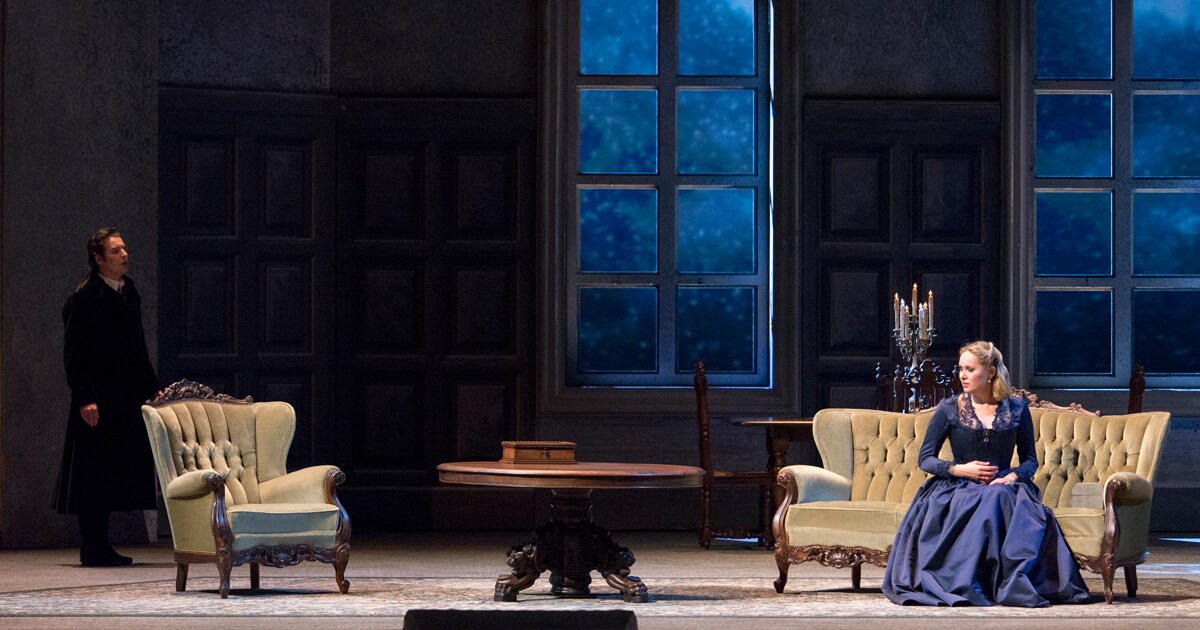
Werther
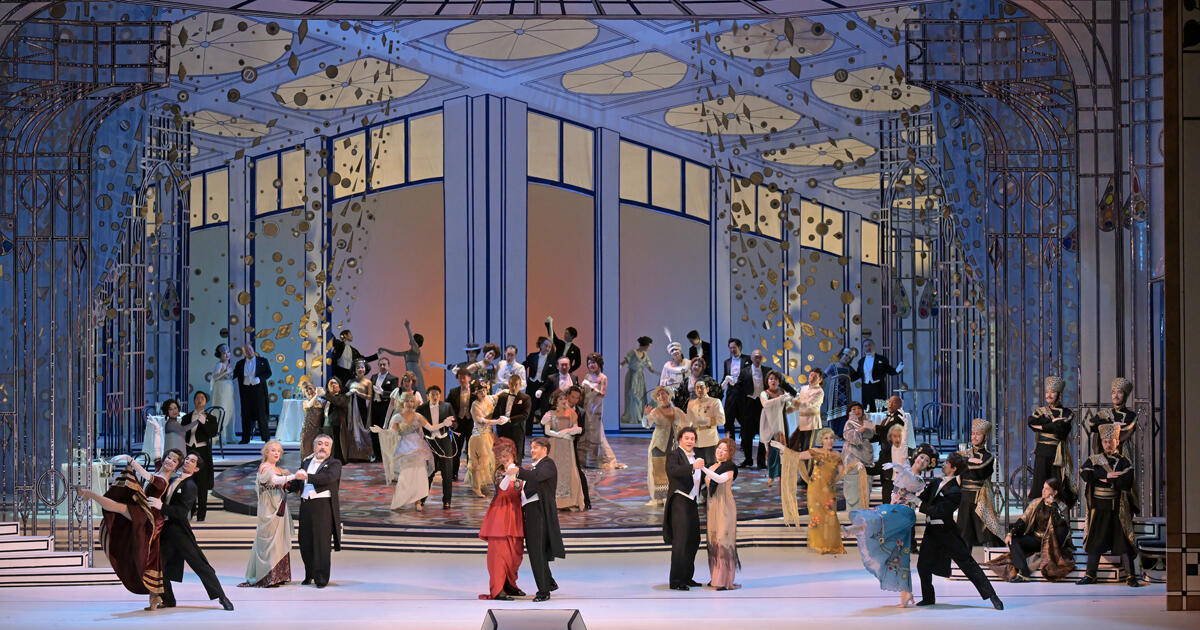
Die Fledermaus
―The next are Verdi, Mozart, and Donizetti.
Verdi's Rigoletto in February-March is conducted by Daniele Callegari. This is going to be his fourth time at the NNTT. Vladimir Stoyanov returns in the title role after nine years. Gilda is sung by Eri Nakamura, a world-renowned soprano and graduate of the New National Theatre Opera Studio. She was received so well for the role of Gilda at the Royal Opera House in London. Il duca di Mantova is sung by Lawrence Brownlee, who recently brought us a great joy with his magnificent singing in Il Barbiere di Siviglia. Sparafucile is portrayed by Kenji Saiki.
In March, Don Giovanni will be conducted by Maestro Norichika Iimori, an indispensable conductor for this theater. We are going to have Vito Priante as Don Giovanni, Taiki Tanaka as Il Commendatore, Daniel Giuliani as Leporello, Irina Lungu as Donna Anna, and Dave Monaco by Don Ottavio, Sara Cortolezzis as Don Elvira, Kei Kondo as Masetto, and Mao Morita as Zerlina. We present a lineup truly worthy of Mozart with not a single minor role.
April brings Verdi's La Traviata conducted by Leo Hussain. We are going to welcome Carolina López Moreno as Violetta Valéry and Antonio Corianò as Alfredo Germont. They are both making their debuts at the NNTT. We look forward to hearing their wonderful voices.
May brings Donizetti's L'elisir d'amore. The Italian maestro Marco Guidarini is conducting for his first time at NNTT. Adina is played by rising soprano Francesca Pia Vitale, and Dulcamara by Marco Filippo Romano. They are both making their NNTT debuts. Nemorino is Matteo Desole, whose Alfredo in La Traviata in 2022 was superb. Belcore is sung by Simone Alberghini.
―Another production in May is Werther by Massenet.
This is the only French opera in the upcoming season. Conductor is Andriy Yurkevych who is originally from Ukraine. His delicate way of building up the music in Eugene Onegin in 2019 and La Traviata in 2022 earned him high praise. He is a conductor I would like to draw your attention to.
Werther features American tenor Charles Castronovo making his debut at the NNTT. He is a global star singer who has taken major European stages like Salzburg, Berlin, and London by storm. This is a performance not to be missed. Charlotte will be sung by the internationally acclaimed Rossini specialist, Aya Wakizono, making her debut in the role. Albert is sung all by Shingo Sudo who is a familiar face here. Sophie by Airi Sunada. The cast members are splendid. We hope you will fully enjoy Werther's tragedy through the music that is so rich in emotion.
―Thank you very much. We look forward to a fulfilling 2025/2026 season.

